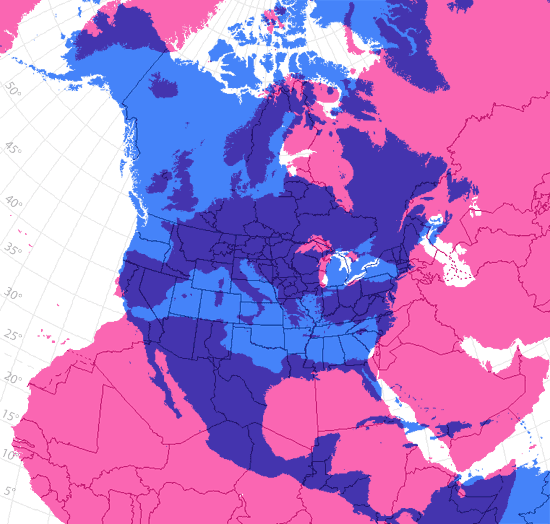 Print This Post
Print This Post- The Strategist - https://www.aspistrategist.org.au -
The pivot: a complication for Europe, not a game-changer
Posted By Stuart McMillan on October 29, 2013 @ 06:00
 It makes sense to think of Europe’s response to the United States pivot towards Asia as an episode in Europe’s continuing preoccupation with retaining US commitment, rather than as a moment of epiphany. That preoccupation has a long history, starting decades before the 2010 ‘pivot speech’ and the later 'rebalancing clarification'.
It makes sense to think of Europe’s response to the United States pivot towards Asia as an episode in Europe’s continuing preoccupation with retaining US commitment, rather than as a moment of epiphany. That preoccupation has a long history, starting decades before the 2010 ‘pivot speech’ and the later 'rebalancing clarification'.
President Obama and I continue to believe that Europe is the cornerstone of our engagement with the rest of the world and is the catalyst for our global cooperation. It’s that basic. Nothing has changed.
I welcome the increased attention that the United States is paying to the Asia-Pacific region. This is also in Europe’s interest. It is certainly not at the expense of the transatlantic relationship. On the contrary, by paying greater attention to Asia and the Pacific, the United States is also contributing to Europe’s security and well-being. Earlier this year, I visited South Korea and Japan. And I was struck by how well these partners understand our interdependence.
Today, the U.S. and the European Union are each other’s largest economic partners, with $2.6 billion dollars’ worth of goods and services flowing between us each day. We invest nearly $4 trillion in each other’s economies, creating the world’s largest investment relationship. And more than 13 million people owe their jobs to the transatlantic economic relationship. The U.S.-EU economic partnership is second to none.
Article printed from The Strategist: https://www.aspistrategist.org.au
URL to article: https://www.aspistrategist.org.au/the-pivot-a-complication-for-europe-not-a-game-changer/
[1] Image: http://www.aspistrategist.org.au/wp-content/uploads/2013/10/usav_europe.png
[2] anger with the US over spying allegations: http://edition.cnn.com/2013/10/24/world/europe/europe-us-surveillance/
[3] this gratifying one: http://www.state.gov/p/eur/rls/rm/2013/feb/203742.htm
[4] a joint statement: http://www.consilium.europa.eu/uedocs/cms_Data/docs/pressdata/EN/foraff/131709.pdf
[5] said this at the Carnegie Europe Event: http://www.nato.int/cps/en/natolive/opinions_103231.htm
[6] Germany is indignant: http://www.nytimes.com/2013/10/25/world/europe/anger-growing-over-united-states-surveillance.html
[7] new Intelligence code of conduct with the US: http://www.europeanvoice.com/article/2013/october/france-germany-to-seek-code-of-conduct-for-intelligence-co-operation-with-us/78562.aspx
[8] run an article: http://www.ft.com/intl/cms/s/0/0bc3041a-3c92-11e3-a8c4-00144feab7de.html#axzz2iyAw6Oqs
[9] Eurohawk: http://en.wikipedia.org/wiki/Northrop_Grumman_RQ-4_Global_Hawkhttp:/en.wikipedia.org/wiki/Eurohawk
[10] pithy comment: http://en.wikiquote.org/wiki/Hastings_Ismay
[11] speaking on the United States, the European Union and the Transatlantic Trade and Investment Partnership: http://www.ustr.gov/about-us/press-office/speeches/transcripts/2013/september/froman-us-eu-ttip
[12] Radical Cartography: http://www.radicalcartography.net/index.html?us-europe